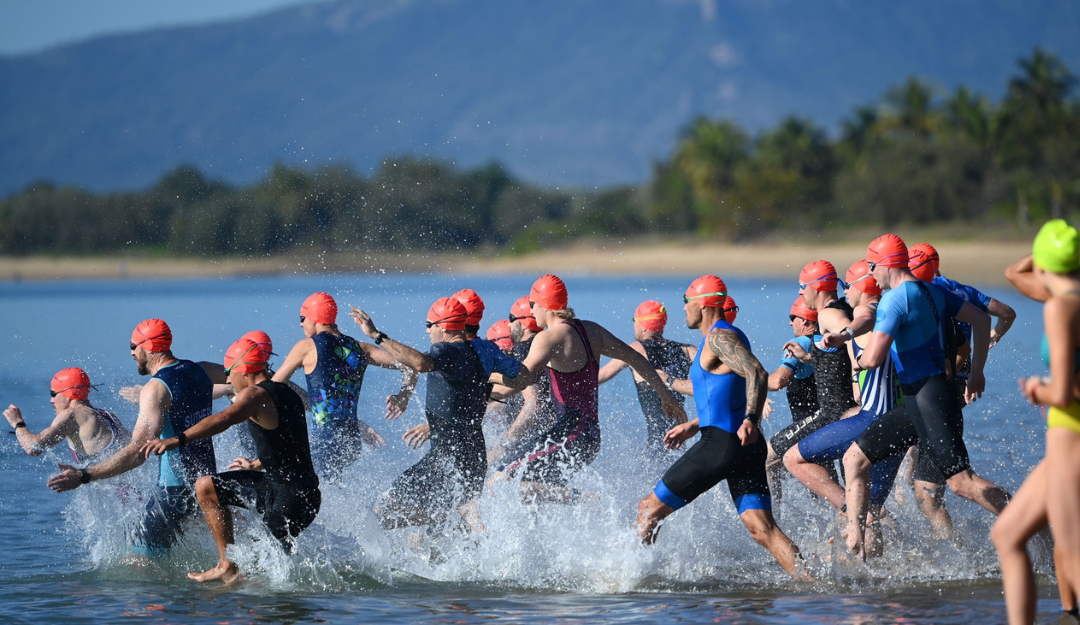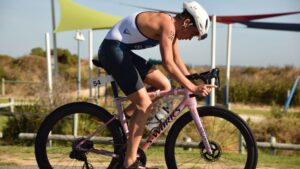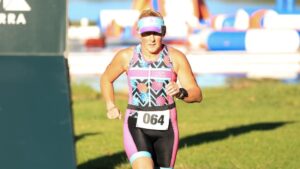In anticipation of Earth Hour—the global movement for environmental consciousness—on Saturday, 22nd March 2025, AusTriathlon is proud to launch its Environmental Sustainability Plan (2025-2028).
This strategic initiative reflects AusTriathlon’s commitment to reducing environmental impact and promoting sustainable practices within the triathlon community. By aligning the launch with Earth Hour, AusTriathlon underscores the importance of collective climate action and inspires its community to contribute to a healthier, more sustainable future.
The plan was developed by the AusTriathlon Environmental Sustainability Advisory Committee (ATESAC) chaired by AusTriathlon board member, Alex Gosman. ATESAC was formed in late 2023 with the goal of creating a framework for the sport to be able to address the unique challenges it faces due to a changing climate.
The ATESAC saw some of Australia’s brightest environment and sustainability minds come together to review the current and future landscape for the sport and develop the plan. The committee will now focus on working through the focus areas of the plan, with one of the first projects to be delivered, the sports baseline carbon footprint.
AusTriathlon thanks the members of ATESAC for their hard work and dedication to bringing this plan to life.
- Alexander Gosman (Chair)
- Stephanie Lebeau
- Michael Ulph
- Eddie Moore
- Gillian Turnbull
- Glen Sturesteps
- Jack Jeffree
- Alex Anasson (Executive Support)
Vision and Approach
AusTriathlon recognises that few sports are as intrinsically linked to the natural environment as triathlon. Safe and enjoyable events rely on pristine landscapes, clean waterways, and stable climatic conditions. As such, environmental stewardship is seen not only as a responsibility but as an essential element in safeguarding the sport’s future.
The plan emphasises the organisation’s role as a custodian of the sport’s culture in Australia, with a commitment to promoting environmental awareness and embedding sustainable practices throughout its ecosystem. This includes addressing the challenges posed by climate change, understanding its magnitude and impact, and working proactively to mitigate these risks.
AusTriathlon’s approach involves setting a solid foundation for future actions through this initial sustainability framework, while also acknowledging the need for adaptability. The plan will “live and breathe,” evolving in response to emerging initiatives and achievements. By drawing inspiration from the United Nations Sustainable Development Goals (SDGs), the organisation aims to shape its objectives around global standards, ensuring that its sustainability efforts are both relevant and impactful.
Key Focus Areas
1. Reduce Emissions
a. Establish a carbon footprint baseline and identify key areas for emissions reduction.
b. Transition to eco-friendly practices, like using electric vehicles and adopting sustainable procurement policies.
2. Advocate for Change
a. Utilise AusTriathlon’s platform to champion climate action, engaging stakeholders and encouraging sustainable behaviors like carpooling to events.
b. Develop educational initiatives and highlight success stories to foster community-wide engagement.
3. Adapt for Change
a. Implement an Extreme Weather Policy and integrate sustainability into event planning and infrastructure to enhance resilience.
4. Build Partnerships
a Collaborate with national and international organisations, research bodies, and local partners to amplify sustainability efforts and address climate challenges.
AusTriathlon also encourages its network of clubs, members, and partners to adopt and embrace these sustainability initiatives. By integrating these goals into its operations and outreach, the organisation aims to promote environmental responsibility at every level of its ecosystem. This alignment not only reinforces AusTriathlon’s commitment to sustainability but also positions the organisation as a leader in advocating for change within the wider sporting community.





